Annabel Karmel Having children's food as a specific category can do more harm than good because it's usually coated in breadcrumbs and high in fat, sugar or salt because manufacturers know kids will eat it. We hope that children will suddenly stop eating burgers and chicken nuggets and grow up to like fresh vegetables, but it doesn't happen like that. It's up to manufacturers to produce healthier food for children. They are part of the problem that makes one third of the children up to the age of 11 in the UK overweight.
Kate Arthur With Blue Parrot we saw there was a gap in the market and we wanted to produce a healthier food range that kids would love. It's a way to reassure parents and is about producing an approach to a balanced diet. For example, we have lower sugar cereals in the range
Louise Smith Kids love the fact that food is especially for them and they like having a brand such as Captain Bird's Eye that they know.
Can manufacturers or retailers be blamed for kids' obesity and ill health?
LS It's not calories that are increasing, it's activities that are decreasing. Kids have TVs in their bedroom and don't exercise like they used to. We need to help them get out and about and at Bird's Eye we're doing a promotion that gives them free tickets to Legoland.
KA Our research shows that children are getting the right amount of energy and they're meeting targets for total fat but they're eating too much saturated fat and sodium. Added to this, most sugar comes from the carbonated drinks they consume. For the Blue Parrot range we've been very strict about the fat and sugar content of the food. Kids are not doing enough exercise and although biscuits and crisps contribute to weight gain, we need to look at how we can make them healthier.
Should children eat processed food?
AK Mums often think they've got a fussy eater because they've fed babies on packet food and then when they try and get that child to eat proper food they've got a problem because it's so used to processed pap. I don't agree that parents don't have time to cook for their children any more it doesn't take long to grill a piece of chicken. Products such as Dairylea Lunchables are a good example they give children the worst possible things - processed ham and cheese.
KA Mums don't have a lot of time to spend in the kitchen to prepare food 75% of parents want to feed their children a healthy diet but they want a convenience factor too.
Jan Fullwood We can't get away from the fact that processed foods are a big part of our life now, so we need to look at how we can make them better.
What can be done to improve children's eating habits?
KA There's a lot of confusion among parents generally fat is a concern for mums, they don't know too much about salt and they don't understand what additives are. But it's not only the retailers' job to educate parents and children about food they should be doing more in schools. Our web site Taste of Success gives information about how our products are made and we have a food award scheme which gets children to cook and think up new ideas.
LS Mums often lack cooking skills so anything we can do to help educate them is good. We're committed to quality and giving a message to consumers about that. Kids are more likely to pester for CDs and trainers and food tends to take up less of their day.
Should the healthy food message go out to children or parents?
LS Kids are phenomenally intelligent so they pick up messages from school and then bring them home and educate their parents, so we've been supporting schemes to get children to eat more fruit and veg at schools. At Bird's Eye we had a children's character who went round schools and produced a video and the kids were asking their parents for fruit as a result.
KA More needs to be done in schools to educate children. We do store tours in Glasgow, taking kids around a store and they do a quiz about fruit and veg and they get to try it and it's proved successful.
We also try to promote information about eating five portions of fruit and veg a day. We've been giving free fruit to kids in a pilot scheme in Glasgow. We found that a lot of them didn't know how to peel a satsuma because their parents are on a low income and don't want to try new fruit. It's also about making healthy food trendy for kids bananas are trendy because of all the sports personalities eating them.
What can the industry do to engender trust?
LS You need something that parents can trust such as Captain Bird's Eye the fish fingers do not have artificial flavours or additives. We also have an interactive web site that kids can play games on and get nutritional information from as well as finding out where fish comes from.
KA There needs to be guidelines on nutrition that are very clear so there is that level of responsibility. You need an independent body to do that.
AK A lot more could be done to market healthier food such as promotions of fruit and veg.
ML Food quality is an important issue to all of us and particularly so with children's foods. The GHI has launched an accreditation scheme as a response to the need for better quality which doesn't only test the suitability of packaging and ingredients but looks at taste too. All foods have to pass the GHI expert taste panels before they can carry the GHI approved logo. Products that carry the mark help to reassure parents about quality.
What is the industry doing wrong?
AK Parents shouldn't have to put up with misleading labelling, such as things like natural fruit flavours' on sugary biscuits. It's a con and it shouldn't be allowed. What manufacturers do is very important for the lives of children.
Marion Lyons When Sainsbury did the Jamie Oliver advert talking about kids' food, it almost missed a trick he could have said, if you're going to have this, you could eat it with vegetables', which would have educated a mass audience very quickly. The challenge is to get the message across without lecturing.
Is there a need to encourage cooking?
AK Kids can play computer games but they can't boil an egg.
JF We try to endorse trying to teach kids young. They should be shown that cooking is fun and how to get involved, and any products that manufacturers make that do that we would encourage.
Manufacturers have such a lot of influence now because they are such big players and this educational role should be encouraged.
ML The reality is that people like the idea of cooking but no-one actually cooks. I think it would be a good idea if the next generation of cookie making and bread making kits for kids was make-your-own spaghetti bolognese or fish pie packs after all, we've all been making cakes for years.
LS Kids are short of time to cook too, so we need to strike a balance between giving them fish fingers and getting them to cook.
{{FEAT. COVER }}
Close menu
- Home
- Retail & Wholesale
-
Products & Suppliers
- Back to parent navigation item
- Products & Suppliers
-
Product Categories:
- Back to parent navigation item
- Product Categories:
- Alcoholic drinks
- Bakery
- Cereals & breakfast
- Cheese
- Chicken & poultry
- Chocolate
- Confectionery
- Crisps, nuts & snacks
- Dairy
- Fish
- Fresh produce
- Frozen
- Household
- Meat
- Own Label
- Sauces & condiments
- Seasonal
- Soft drinks
- Vaping
- Vegan & plant-based
- World foods
- Suppliers
- People
- Reports & Data
-
Topics A-Z
- Back to parent navigation item
- Topics A-Z
-
Popular topics:
- Back to parent navigation item
- Popular topics:
- Cost of living crisis
- Crime
- Deposit Return Schemes
- Finance
- Government & Regulation
- Health
- Inflation
- Loyalty
- Marketing
- Mergers & Acquisitions
- New Product Development
- Sourcing
- Supply chain
- Sustainability & environment
- Technology
- Ultra Processed Foods
- Vaping
- A-Z all topics
- Content by type:
- Events
- Ask iA (beta)
- Subscribe now
Sign in to comment on this article
Not logged in before? Register for FREE guest access today.
You will be able to:
- Read more stories
- Receive daily newsletters
- Comment on stories
Advert








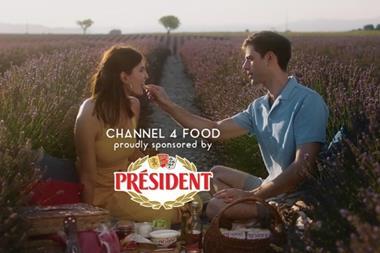
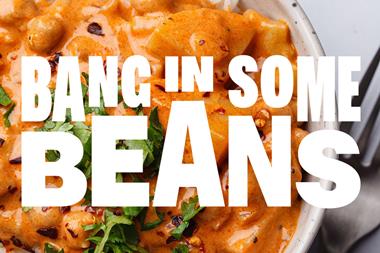
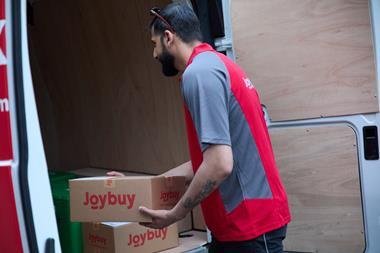
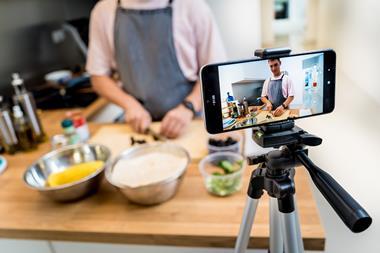
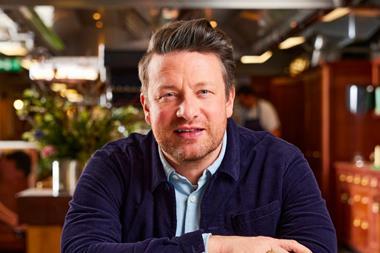






No comments yet